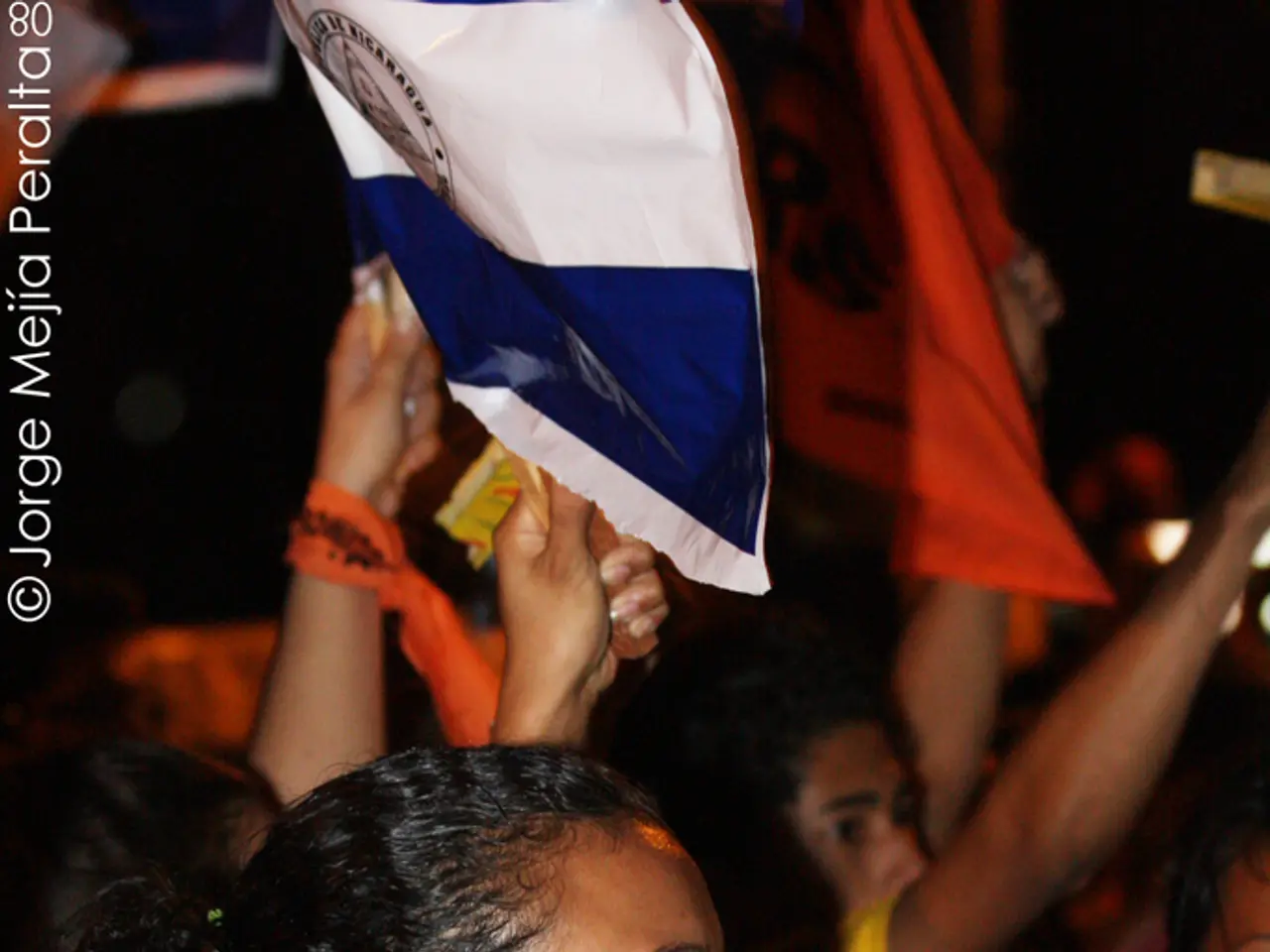Protesters in Cairo's UN Women office arrested for demonstrating against Israel's conflict in Gaza.
In a stark display of government repression, over 200 pro-Palestinian activists, including foreign nationals from France, Canada, and Algeria, were detained in Cairo ahead of the Global March to Gaza [1][3]. The event aimed to break Israel's blockade on Gaza. Hundreds more were questioned, deported, or stranded at the airport without basic necessities [1].
The Egyptian authorities' actions were aimed at sabotaging the aid convoy and preventing the march from reaching the Rafah border to Gaza. The Egyptian regime, under President Abdel Fattah el-Sisi, has a history of suppressing any anti-government activity, fearing such mobilizations could escalate into anti-government uprisings amid economic hardship [2].
While Egypt officially criticizes Israel's actions, it also seeks to maintain its role as a mediator between Israel and Hamas, aligning with U.S. and Israeli security interests [2]. This balancing act has led to the crackdown on public demonstrations of solidarity with Gaza.
The repression is part of a broader crackdown on public protests in Egypt. On 8 March, International Women's Day, security forces dispersed a women's pro-Palestine protest in Cairo. Similarly, a Gaza solidarity protest outside the headquarters of UN Women in Cairo was dispersed on Tuesday.
On 4 April, at least 10 protesters were detained at a vigil outside the Journalists' Syndicate in Cairo, denouncing the Egyptian government's role in the siege on Gaza. Among those detained were prominent activists such as Mahienour el-Masry, Lobna Darwish, Rasha Azab, Ragya Omran, Mai el-Mahdy, Israa Yusuf, Farida al-Hifny, and several others [4].
Hossam Bahgat, the director of the Egyptian Initiative for Personal Rights (EIPR), has lost contact with Lobna Darwish, the director of EIPR's women's rights and gender programme [5]. Bahgat stated that Darwish last said she was with the other detained feminist activists on a microbus of the security agencies; they did not know where they were going.
The activists staged a rally to demand security clearance for the Global Conscience Convoy, a humanitarian convoy into Gaza planned by Egypt's Journalists' Syndicate. The protesters also read a letter addressed to UN Women, condemning human rights violations and war crimes affecting women in Gaza and Sudan [4]. The letter further called on UN Women to carry out investigations into alleged sexual crimes and war crimes against women in the affected areas.
As of early July 2025, many detained activists have been deported, but some remain held in Egypt [5]. The Egyptian government's actions against pro-Palestine activists highlight its ongoing efforts to suppress any form of protest or campaign that could destabilize its position.
- The Global March to Gaza, aimed at breaking Israel's blockade on Gaza, faced significant repression in Egypt, with over 200 pro-Palestinian activists, including foreign nationals, detained in Cairo.
- The Egyptian authorities' actions were strategically aimed at sabotaging the aid convoy and preventing the march from reaching the Rafah border to Gaza.
- The Egyptian regime, under President Abdel Fattah el-Sisi, has a history of suppressing any anti-government activity, fearing such mobilizations could escalate into anti-government uprisings amid economic hardship.
- This repression is part of a broader crackdown on public protests in Egypt, extending to human rights events such as International Women's Day protests in Cairo.
- On 4 April, at least 10 protesters, including prominent activists, were detained at a vigil outside the Journalists' Syndicate in Cairo, denouncing the Egyptian government's role in the siege on Gaza.
- The detained activists, such as Lobna Darwish, staged rallies demanding security clearance for humanitarian convoys into Gaza and also read letters addressed to UN Women, condemning human rights violations and war crimes affecting women in Gaza and Sudan.
- The Egyptian government's actions against pro-Palestine activists, like the deportation of some detainees and the ongoing detention of others, reveal their attempts to maintain stability by suppressing any form of protest or campaign.
- Beyond the Middle East, the crackdown on pro-Palestine protests in Egypt also raises concerns about general-news issues, such as freedom of speech, human rights, and democracy.
- Apart from the war-and-conflicts in the Middle East, the science and health-and-wellness sectors, including women's health, could also be influenced by the political climate, as proven by allegations of sexual crimes and war crimes against women in Gaza and Sudan.




